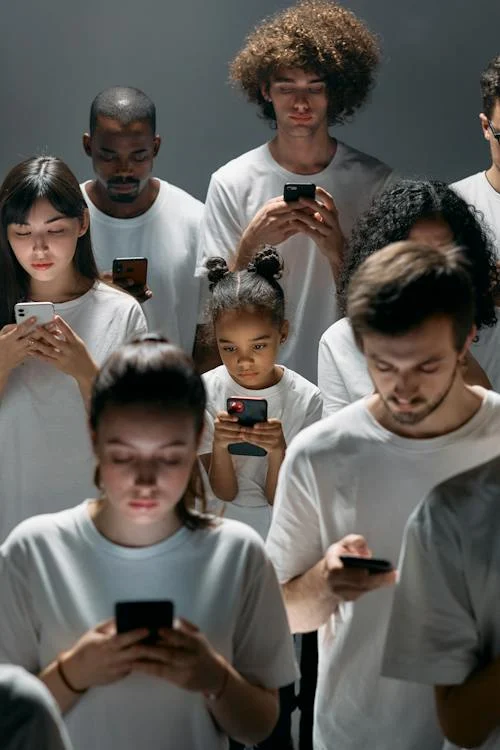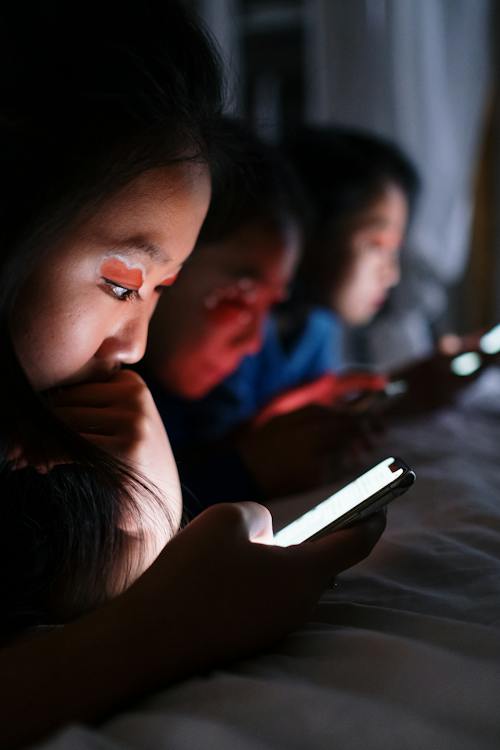
Smartphones and cell phones have become an integral part of the daily lives of ‘smartphone users’, revolutionizing the way adolescents communicate, work, and access information. However, excessive use of these devices can lead to addiction, affecting individuals’ mental health, productivity, and overall well-being. Understanding the impact of smartphone and cell phone addiction is crucial in recognizing the warning signs and addressing this growing concern.
What is Smartphone and Cell Phone Addiction?
Defining Smartphone and Cell Phone Addiction
Smartphone and cell phone addiction refers to the compulsive and problematic overuse of these devices, leading to negative consequences on an individual’s life. It involves a behavioral addiction similar to substance use disorder, with individuals unable to control their phone use despite the adverse effects.
Understanding the Impact of Smartphone and Cell Phone Addiction
The excessive use of smartphones can have detrimental effects on various aspects of an individual’s life, including mental health, social interactions, and overall productivity. It can lead to a decrease in face-to-face communication, reduced attention span, and disrupted sleep patterns, impacting both personal and professional spheres.
Recognizing the Warning Signs of Smartphone and Cell Phone Addiction
Recognizing the warning signs of smartphone and cell phone addiction is essential for early intervention. Individuals may exhibit behaviors such as constantly checking their phones, experiencing anxiety when away from their devices, and neglecting responsibilities due to excessive phone use.
How Does Smartphone and Cell Phone Addiction Affect Individuals?
The Effects of Smartphone and Cell Phone Addiction on Mental Health
Smartphone and cell phone addiction can significantly impact an individual’s mental health, leading to increased anxiety, depression, and feelings of isolation. The constant need to check the phone for notifications and social media updates can exacerbate existing mental health issues.
Social and Interpersonal Consequences of Smartphone and Cell Phone Addiction
Excessive ‘use of your phone’ can result in adolescents experiencing social isolation and strained interpersonal relationships. It may lead to a decreased ability to engage in face-to-face interactions, impacting the quality of personal connections and overall social well-being.
Impact of Smartphone and Cell Phone Addiction on Productivity and Daily Life
Adolescents struggling with ‘smartphone addiction’ may experience decreased productivity, as the constant need to ‘use their phone’ interferes with work, studies, and daily activities. This excessive ‘phone use can lead to a decline in overall life satisfaction and feelings of fulfillment for adolescents.
What Are the Common Signs and Symptoms of Smartphone and Cell Phone Addiction?
Behavioral Patterns Associated with Smartphone and Cell Phone Addiction
Common behavioral patterns indicative of smartphone and cell phone addiction include the constant urge to use the device, neglecting responsibilities in favor of phone use, and experiencing distress when unable to access the phone.
Emotional and Psychological Indicators of Smartphone and Cell Phone Addiction
Individuals addicted to their smartphones may display emotional indicators such as irritability, mood swings, and heightened anxiety related to their phone use. Adolescents suffering from nomophobia may also use the device as a coping mechanism for dealing with stress or negative emotions.
Physical Manifestations of Excessive Smartphone and Cell Phone Use

Excessive smartphone use can lead to physical manifestations such as eye strain, headaches, and disrupted sleep patterns. Additionally, prolonged use of smartphones may contribute to musculoskeletal issues and poor posture.
How Is Smartphone and Cell Phone Addiction Diagnosed?
Evaluating and Assessing Smartphone and Cell Phone Addiction
Diagnosing smartphone and cell phone addiction involves comprehensive evaluation and assessment of an individual’s phone use patterns, psychological well-being, and the impact of addiction on their daily life. Mental health professionals like Dr. Smith utilize various screening tools and interviews to assess the severity of the smartphone addiction in adolescents.
Diagnostic Criteria and Tools for Identifying Smartphone and Cell Phone Addiction
Professionals may utilize diagnostic criteria such as the Diagnostic and Statistical Manual of Mental Disorders (DSM-5) to identify smartphone and cell phone addiction. Additionally, self-report questionnaires and behavioral assessments aid in the process of diagnosing ‘phone’ dependence, said Dr. Johnson.
Seeking Professional Help for Suspected Smartphone and Cell Phone Addiction
Adolescents exhibiting signs of being ‘addicted to my phone’ should seek professional help from mental health professionals or addiction specialists. Early intervention and support can significantly improve the prognosis for ‘addicted to my phone’ adolescents and aid in the recovery process.
Can Smartphone and Cell Phone Addiction Be Treated?
Therapeutic Approaches for Managing Smartphone and Cell Phone Addiction
Treatment for smartphone and cell phone addiction may involve cognitive-behavioral therapy, mindfulness-based interventions, and establishing healthy coping mechanisms to manage phone use. Interventions aim to address underlying psychological factors contributing to the addiction.
Support Systems and Resources for Individuals
Struggling with Smartphone and Cell Phone Addiction
Support systems such as support groups, online forums, and community resources play a pivotal role in aiding individuals struggling with smartphone and cell phone addiction. These platforms provide a safe space for individuals to share experiences and access valuable resources.
Developing Healthy Smartphone and Cell Phone Use Habits and Boundaries
Establishing healthy smartphone use habits and setting boundaries on phone use can significantly aid in overcoming addiction. This may involve limiting screen time, scheduling phone-free periods, and engaging in alternative activities that promote overall well-being, which can help addicted adolescents sleep better.
Q: What is smartphone addiction?
A: Smartphone addiction, also known as problematic smartphone usage, refers to the excessive and compulsive use of smartphones, leading to negative impacts on various aspects of life.
Q: How can I recognize if I’m addicted to my smartphone?
A: You may be addicted to your smartphone if you experience withdrawal symptoms when away from your phone, have difficulty controlling your smartphone use, and continue using it despite negative consequences.
Q: What are the negative effects of smartphone addiction?
A: According to Dr. Williams, smartphone addiction amongst adolescents can lead to various negative effects such as insomnia, decreased productivity, strained relationships, and even physical health problems due to excessive ‘use your phone’ screen time.
Q: How can I address smartphone addiction?
A: Addressing smartphone addiction involves setting limits on smartphone use, seeking support from friends and family, engaging in alternative activities, and, if necessary, seeking professional help from a licensed therapist or addiction treatment center.
Q: What are some signs of internet addiction related to smartphone use?
A: Signs of internet addiction related to smartphone use include obsessively checking your phone, feeling anxious when not using it, neglecting real-life activities in favor of using the phone, and using the smartphone in situations where it is inappropriate, such as while driving.
Q: Can smartphone addiction be compared to other types of addiction, such as alcohol addiction?
A: While smartphone addiction shares some similarities with other types of addiction, such as the impact on daily functioning and potential withdrawal symptoms, it is unique in its association with technology and constant connectivity.
Q: What are some tips for reducing problematic cell phone usage?
A: Tips for reducing problematic cell phone usage include setting specific times for phone use, turning off unnecessary notifications, engaging in offline activities, and practicing mindfulness to reduce the impulse to constantly check your phone.
Q: What is “nomophobia” and how does it relate to smartphone addiction?
A: “Nomophobia” refers to the fear of being without a mobile phone or unable to use it. This fear is closely related to smartphone addiction and reflects the reliance and emotional attachment people have to their smartphones.
Q: Can online therapy or counseling services help with smartphone addiction?
A: Yes, online therapy and counseling services, such as BetterHelp, can provide support and guidance for addressing smartphone addiction. Licensed therapists can offer strategies and interventions to help individuals manage their smartphone usage effectively.
Q: What are the potential benefits of reducing smartphone overuse?
A: According to findings by Dr. Anderson, reducing ‘smartphone’ overuse can lead to adolescents having improved sleep, enhanced focus and productivity, stronger interpersonal relationships, and a healthier balance between online and offline activities.










